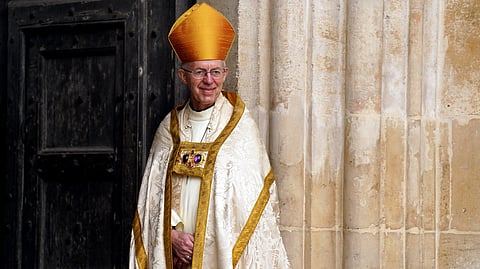
- NEWS
- the EDIT
- COMMENTARY
- BUSINESS
- LIFE
- SHOW
- ACTION
- GLOBAL GOALS
- SNAPS
- DYARYO TIRADA
- MORE

The Church of England has been thrust into crisis once again following the resignation of Archbishop of Canterbury Justin Welby. His decision to step down on 12 November 2024, came after a damning independent report revealed the church’s role in covering up widespread abuse by John Smyth, a lawyer who organized evangelical summer camps in the 1970s and 1980s. This scandal has reignited demands for urgent reform and accountability within the Church.
The report, known as the Makin Review, detailed how Smyth inflicted "prolific, brutal, and horrific" abuse on as many as 130 boys and young men, spanning multiple countries including the UK, Zimbabwe, and South Africa. Despite church leaders knowing of Smyth’s actions as early as the 1980s, it was not until mid-2013 that officials were aware of the full extent of the abuse. The failure to report the crimes to authorities resulted in the ongoing harm to victims, some of whom continued to suffer under the church's watch until Smyth's death in 2018.
Archbishop Welby, who has led the Church of England since 2013, faced increasing pressure to resign after the report's findings. He had been informed of the abuse in 2013, yet the report concluded that he "could and should" have taken stronger action. Welby expressed deep sorrow for the victims, stating, "I hope this decision makes clear how seriously the Church of England understands the need for change and our profound commitment to creating a safer church."
However, many critics, including victims of Smyth's abuse, believe Welby’s resignation does not go far enough in addressing the systemic issues within the Church. Bishop Julie Conalty, speaking to BBC Radio, argued that "institutional changes" were necessary, stating that while progress had been made in safeguarding efforts, the Church still fails to prioritize victims. She emphasized that the Church must "put victims and survivors at the center" of its efforts and acknowledged the frustration many felt in trying to make the institution safer.
Calls for further resignations have also surfaced. Mark Stibbe, a former vicar and author, voiced his support for increased accountability, noting that many individuals within the Church had been complicit in the silence surrounding Smyth’s actions. “People need to take responsibility for having been silent when they should have spoken,” he said. The Makin Review found that some church officials were aware of Smyth’s abusive tendencies in the 1980s, but it wasn’t until 2013 that the full scope of his crimes was understood at the highest levels of the Church.
Archbishop of York, Stephen Cottrell, acknowledged that accountability was essential but also defended the Church’s ongoing reform efforts. “We are doing what has to be done through our Synodical processes,” he stated, referencing the Church’s General Synod, which is responsible for making decisions regarding church law. Cottrell reiterated that the reforms recommended by the review were being implemented, though he expressed frustration over the time it takes to enact such changes.
The scandal is not the first of its kind within the Church of England. Previous investigations, including a 2020 report on child sexual abuse, have revealed that the Church has faced a significant number of allegations over the years. This latest case, however, has drawn particular attention due to the scale of the cover-up and the high profile of those involved.
While the Church of England has previously been compared to the Catholic Church in terms of abuse scandals, the recent revelations suggest that the problem has been just as pervasive. Lawyer Richard Scorer, who represents some of Smyth’s victims, noted that the number of abuse cases emerging from the Church of England in recent years has grown, making it clear that the institution's issues with safeguarding are as severe as those within the Catholic Church.
As the Church faces this latest scandal, the question of leadership remains unresolved. Welby’s resignation has triggered a search for a successor, a process that may take months. In the interim, calls for immediate action to address the Church’s failings are growing louder. Whether these demands lead to meaningful reform remains to be seen, but the Church of England is under intense scrutiny, and the victims of abuse continue to seek justice and accountability.
The resignation of Justin Welby marks a pivotal moment for the Church of England, which must now reckon with its past and make good on its promises to safeguard its members and rebuild trust. The work ahead is immense, and it remains unclear whether the institution will be able to effect the necessary changes in time to restore its credibility and protect future generations from harm.
(Sources: Joe Jackson, Phil Hazelwood - AFP)
